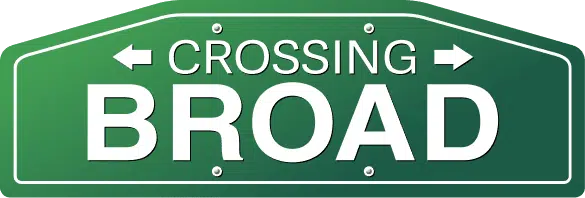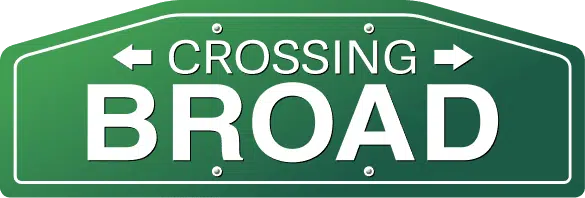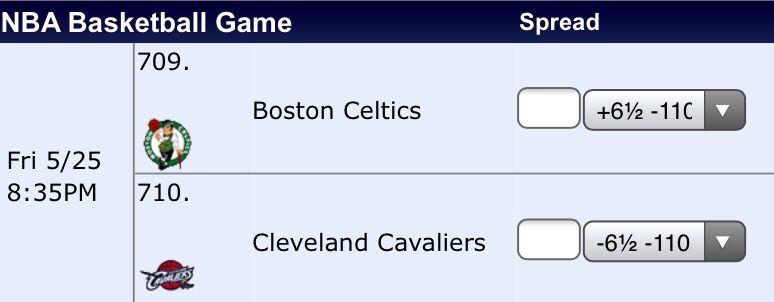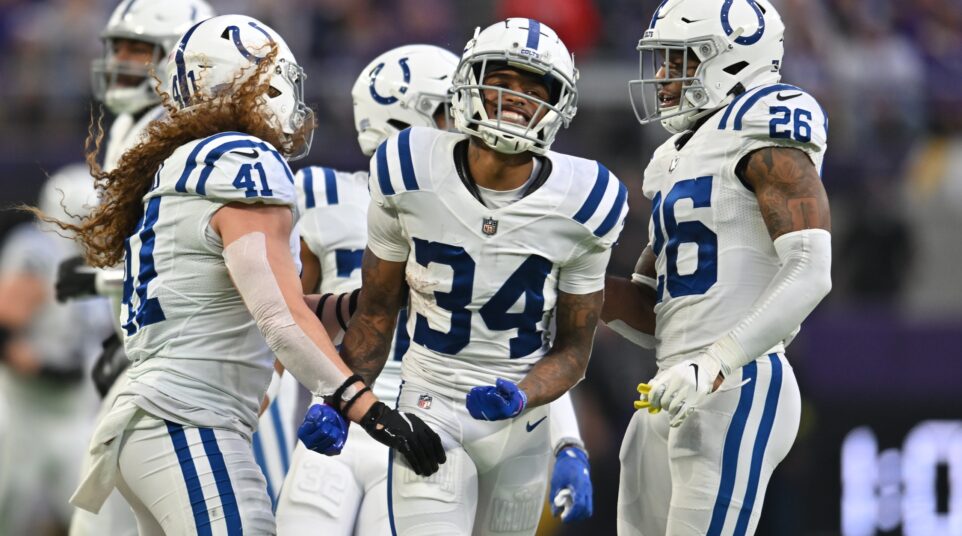
A Beginner's Guide to Sports Gambling
For some, the legalization of sports gambling won’t change much. There will be those who abstain from the temptation, those who occasionally dabble, and then there will be those who hate themselves late on a Sunday night as they try to figure out which credit card is going to pay the Comcast bill. Still, the world of sports gambling is foreign to many, and it is likely the U.S. Supreme Court’s recent landmark decision that allows individual states to govern its legality will bring a significant part of the fan population into the fray.
Why should I bet on sports?
Because it’s awesome, that’s why. Yes, there is a pretty good chance that you may piss away your hard-earned money. Yes, you may ultimately develop a crippling addiction that forces you to irrationally justify your losses by telling yourself lies such as, “I don’t need a savings,” or, “If I just eat Ramen Noodles for next five weeks and buy off-brand toothpaste, it will be like all of this never happened.” Yes, you may also run the risk of alienating yourself from friends and incensing your significant other when you are out to dinner by compulsively checking to see if the Raptors beat the Pistons by six points. But you could also WIN—and winning is fun. Nailing a game to validate your sports acumen while also putting money in your pocket that you didn’t really earn is a magical feeling. I’m not sure that there’s anything better.
From a practical standpoint, a diligent and disciplined bettor who understands trends, traps, and contextual factors can make money, but it’s easier said than done. For the average fan, sports wagering provides a form of convenient entertainment, and it can spice up a rather ordinary sporting event. Don’t care about the Angels and Astros game on Sunday Night Baseball? Now you do!
What can I bet on?
EVERYTHING! Well, almost everything. Bettors have several wagering options at their disposal—point spreads, moneylines, totals, and varying prop bets depending on the sport and the overall significance of the bet. Betting options aren’t limited to the four major American sports leagues. If it’s a regulated and sanctioned athletic event, it is probably on the board. Have a good feeling about Juan Martin del Potro at Wimbledon, or the Minnesota Lynx over the New York Liberty? Hammer that shit.
Uh, what is a point spread?
Typically seen most often in basketball and football betting, a point spread establishes which team is the favorite and which is the underdog in a given contest. They are set by bookmakers to make each side an equally attractive betting option.
Why is this necessary?
Because if a good team plays a shitty team, everybody will pick the good team to win. If the Eagles and Browns play, who are you taking? The Eagles. But if the Eagles have to win the game by at least 15 points, many more bettors will be enticed by the idea that the lesser team just has to keep things within the set number. That rationalization goes something like this, “These guys suck, but that’s A LOT of points. I think they can stay within two touchdowns.” The discrepancy between two teams won’t always be this obvious, but in the majority of contests, there is a favorite and an underdog, and bettors naturally lean towards the favorite.
Let’s look at this in greater detail by examining the point spread for Game 6 of the NBA Eastern Conference Finals between the Boston Celtics and Cleveland Cavaliers.
The Cavs, facing elimination, are a 6.5-point favorite, which is indicated by the “-6.5” on the screen. The “+6.5” means the Celtics are “getting” 6.5 points; therefore, Cleveland must win by seven points or more in order to win/cover the bet. If the Celtics win the game outright, or lose by six points or less, then they win the bet. One more note: Bookmakers usually want an equal amount of money bet on both sides of a contest.
Why do bookmakers want an equal amount of money bet on both sides? Wouldn’t that mean they don’t make any money?
No, it actually guarantees that they make money. Bookmakers charge what is commonly to referred to as “vig” or “juice” on losing bets. That fee is outlined prior to your bet and is typically 10 to 20% of your total wager. Take a look at the line illustration above. See the (-110) next to the point spreads? That indicates the amount a bettor needs to risk in order to win $100 dollars. In this case, a bettor must risk $110 to win $100, $55 to win $50, or $27.50 to win $25. It’s simply a percentage of whatever is at risk. Let’s say that the house takes $100 dollars of action on both sides of a game. This means they are guaranteed to profit on the fees alone. It doesn’t always work out this way, as sometimes books kill it or get crushed on certain games when the majority of money is wagered on one side.
What happens when the majority of bettors takes one side?
Bookmakers have the option of moving the point spread. Using the example above, let’s say the Cavaliers opened as a 6.5-point favorite over the Celtics and bettors jump all over the Cavaliers. In response, bookmakers can move the line in the Celtics favor, giving them more points, to lure bettors to that side. I have seen certain situations in which books say, “Go ahead, public. Have at it,” and hold the line steady because they feel they are on the right side of the proposition. But generally speaking, slanted action will shift lines.
Does a point spread shift impact my bet?
No. Whatever the point spread is at the time your wager is confirmed is the number that you play with. Subsequent line movement does not change your bet.
This point spread thing isn’t for me. Can I bet without a point spread?
Most of the time, yes. A moneyline bet eliminates the point spread element dynamic and simply requires that the selected team wins. Here’s the catch—if you are betting on the team that is favored, then you will have to risk more money to do it. Here is the point spread and money line for Cavaliers and Celtics game:
Let’s say you want to win $100 and that you want to bet the Cavs. In this case, it will require a $320 bet (indicated by the -320) for a $100 return. Money lines can move in response to public betting tendencies, much the way point spreads do. In simplified terms, betting on favorites to win money line bets can be expensive, but it also provides tremendous value if you have a hunch that an underdog is going to win outright. In this example, a $100 money line bet on the Celtics would pay out $260 (indicated by the +260).
Can you bet with a spread on hockey and baseball?
Yes, sort of. Some books offer more wide-ranging options, but standard bets are moneyline bets. These sports typically allow for “puck line” and “run line” bets. These wagers typically mean a team has to either win or lose by two or more runs/goals. (Soccer allows for a similar proposition, but that process is a bit more complicated and I don’t care about it.) Let’s say you really like the Phillies over the Blue Jays in the first game of their weekend series. Here are the betting lines on this game:
If you have a strong feeling the Phillies will win the game by multiple runs, rather than placing a $115 bet to win $100, you can bet them on the run line to receive a more favorable payout. The +172 indicates that if the Phillies win by two or more runs, the payout will be $172 dollars on a $100 bet. It should be noted, however, that betting the opposite way–for the Blue Jays to stay within two runs–is both expensive and an unwise proposition. “I think they’re going to lose, but only by a run” is not the soundest logic. If say you think the Blue Jays are going to win, it makes far more sense to take them outright– it’s cheaper. To curtail the risk of betting on heavy favorites, bettors can use a run line bet to cheapen the price. Take a look at the betting options between the Giants and Cubs:
Risking $245 to win $100 on the Cubs is expensive. If you have a ton of confidence in the Cubs, then the run-line option may make some sense because it would only require a $130 bet to win $100.
Damn. That seems like a good deal. Is it a good deal?
It is, until you realize that baseball and hockey contests are often decided by one run/goal. Imagine the Cubs are leading 4-2 in the ninth. The Giants have a runner on third base with one out. The Cubs, having a run to give, play the infield back. A groundball is hit to shortstop, the runner scores, and there are now two outs. A batter later, the third out is made. Cubs win! Cubs! But you don’t. Often in gambling, if something seems too easy, it’s probably a trap.
Is there a way I can risk very little money, but make a lot of it?
Yes, you can accomplish this through a parlay. This is a series of multiple bets that are linked together. If every bet made wins, you win. If even one of the bets lose, you lose. For instance, let’s say you do a four-bet parlay with a $20 risk. Three games of the parlay win and then the fourth game loses—you’re still beat. The parlay payout depends upon how many games are involved and the odds on each individual game. It’s a good betting option if you are looking for action on multiple games and don’t wish to wager much, but still want a chance at hitting for a quality payout.
What if I don’t want to bet on a side to win, but want to bet on other elements of the game?
Let’s go back to the Cavaliers and Celtics game:
You have no idea which side will win or cover, but you have a feeling that scoring is going to be hard to come by. You can bet on what is referred to as the “total,” or “over/under.” In this particular game, the total is set is at 201.5 points. If you have a hunch that it is going to be a low-scoring game, then taking the under makes sense. If you think it is going to be a shootout, then take the over. Game totals are available in all four major American sports, and the same principles apply for betting totals in each of them. This wager exists in soccer, too, but again, that ain’t my game.
Can I bet on other elements of a contest aside from winner/loser and total points/runs/goals scored?
Welcome to the wonderful world of prop betting! Each sport has its own set of traditional props. In baseball, you can bet on whether or not a run will be scored in the first inning and individual player matchups such as who will have more total bases, among other options. In football, you can bet on things like who will score the first touchdown, or if the first score of the game will be a touchdown or a field goal/safety. In basketball, bets can be made on which team will score the first 10 or 20 points of the game, which team will win the opening tip, and individual player matchups. In hockey, who will win the opening face-off, and individual player matchups are commonly bet. Which team will score first is also a popular prop bet in all four major sports. These are just surface level props. Several places offer wagers on other components of the game.
Can I place bets once the game starts?
Yes, you can. There are in-game or “live” betting apps available. If you want to see how the game is playing out in the early going before getting involved, or if you think you have identified an in-game trend and have a feel for what will go down, then this is a good option for you. In-game betting allows for bets to be placed on a contest’s winner/loser, game totals, and individual quarters/periods/innings among other things. Some apps will even allow for bettors to place bets about the outcomes of individual plays.
What happens if I lose more money than I can handle, or I feel my gambling is getting out of control?
I did not post this question to be funny. Gambling makes for great talking points, can spice up a game, and is an exciting form of entertainment, but it can also be dangerous for people with addictive personalities. If you lose more money than you can handle, the worst thing you can do is continue to chase a win in order to score a bailout. If you find yourself firing off bullshit bets on Russian soccer games that you know nothing about because it’s Tuesday afternoon and you’re bored at work, you’re probably in trouble.
Here’s some more pro tips: The worst thing you can do is think your luck HAS to change during a bad streak. No it doesn’t. It can get way worse. Also, if you find yourself covering losses by skipping bill payments, or abstaining from the purchase of necessities, then stop. Don’t get yourself so jammed up by losses that it changes your present and future. Maybe you can handle losing a few hundred dollars every once in a while, then cool. Whatever. But never bet outside your means to the point where you’re flushing entire paychecks as you try to recoup money you couldn’t afford to lose in the first place.










